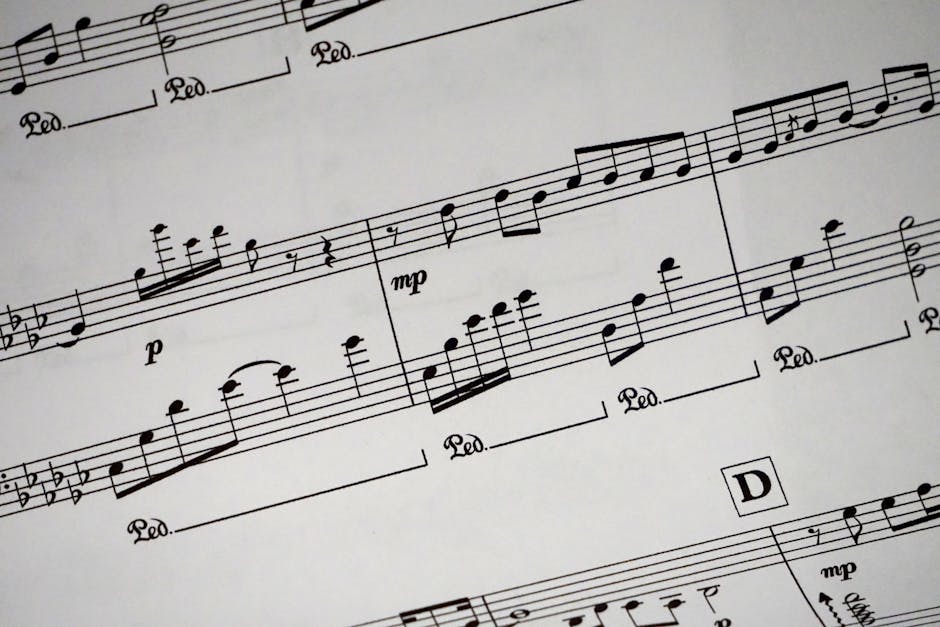The Role of Music in Enhancing Your Self-Care Routine
Music has a profound ability to affect our emotions, thoughts, and physical state. From soothing melodies that calm the mind to energetic beats that motivate the body, music is more than just entertainment; it’s a powerful tool for self-care. Its therapeutic qualities have been recognized throughout history, playing an essential role in both ancient rituals and modern clinical settings. Today, as stress and mental health challenges become more prevalent, integrating music into daily self-care routines can provide significant benefits for overall well-being.
The Science Behind Music and Self-Care
Music’s impact on the brain is supported by extensive scientific research. Studies have shown that listening to music activates the brain’s reward system, releasing dopamine, a chemical associated with pleasure and motivation. In addition to this, relaxing music can lower cortisol levels (a hormone linked to stress) helping individuals feel more at ease.
Neurological research also highlights how different types of music affect various areas of the brain. For instance, classical music stimulates cognitive functions such as memory and attention, while upbeat tracks can enhance mood and energy levels. This versatility makes music a flexible tool for self-care that can be tailored to individual needs.
Furthermore, according to the American Psychological Association (apa.org), engaging with music (whether through active listening or playing an instrument) can reduce symptoms of anxiety and depression. These findings emphasize why music should not be overlooked when creating a holistic self-care routine.
Incorporating Music into Your Daily Routine
Adding music to your self-care regimen doesn’t require a significant time investment or specialized skills. It’s about finding moments in your day where music can enhance your activities or help you unwind. For example:
- Mornings: Start your day with an energizing playlist to set a positive tone.
- Work Breaks: Use instrumental tracks to maintain focus during tasks.
- Evenings: Opt for calming tunes to relax before bedtime.
The key is identifying what works best for you. Experiment with different genres and tempos to discover what resonates most with your mood and goals.
The Role of Active Participation
While passive listening offers numerous benefits, actively engaging with music can amplify its effects. Learning to play an instrument or participating in singing sessions are excellent ways to immerse yourself in musical experiences. Research published by the National Institutes of Health (nih.gov) highlights that these activities stimulate brain regions responsible for coordination, memory, and emotional regulation.
If learning an instrument feels daunting, consider community-based options like group drumming circles or choir groups. These provide not only musical engagement but also social interaction, which is another critical component of self-care.

Music Therapy: A Professional Approach
For those seeking deeper benefits, working with a certified music therapist can be transformative. Music therapy involves structured sessions where specific musical elements are used to address emotional or psychological issues. This form of therapy is particularly beneficial for individuals dealing with trauma, chronic pain, or neurological disorders.
A study from the Cleveland Clinic (clevelandclinic.org) demonstrates how guided music therapy can alleviate symptoms of PTSD and improve quality of life in patients suffering from long-term illnesses. Whether it’s through guided breathing exercises set to music or improvisational sound-making, these sessions offer tailored strategies for emotional healing.
The Physical Benefits of Music
Music’s influence extends beyond mental health; it also impacts physical well-being. For example, rhythmic beats can improve motor coordination during physical activity. This explains why many fitness enthusiasts rely on curated workout playlists to maintain momentum during exercise.
A study conducted by Brunel University revealed that synchronized music improves endurance by up to 15% in athletes performing repetitive tasks like running or cycling. Additionally, slow-tempo tracks are often used in yoga or meditation practices to promote relaxation and deep breathing.
This dual benefit (enhancing both mental and physical states) makes music an indispensable resource for comprehensive self-care.
Curating Your Personalized Playlist
A well-curated playlist can serve as your go-to toolkit for various self-care scenarios. When building your playlist:
- Select tracks that resonate emotionally with you.
- Include a mix of tempos to match different moods or activities.
- Avoid overloading it with too many songs; keep it concise and purposeful.
Streaming platforms like Spotify and Apple Music offer pre-made playlists based on themes such as relaxation, motivation, or focus. Personalizing these lists ensures they align more closely with your unique preferences and needs.
The Importance of Balance
While incorporating music into your routine can yield numerous benefits, moderation is essential. Overexposure to certain genres (such as high-energy electronic or heavy metal) might lead to overstimulation rather than relaxation for some individuals.
Taking occasional breaks from auditory stimulation allows the mind to recalibrate and prevents potential fatigue associated with constant noise exposure. Striking this balance ensures that your use of music remains beneficial rather than counterproductive.
Weaving music into your self-care routine offers an accessible yet impactful way to enhance both mental and physical well-being. Whether through passive listening during daily tasks or active participation in creating music, there are endless possibilities to explore its therapeutic potential. With scientific backing supporting its numerous benefits, taking advantage of this universal medium is both practical and enriching.
The relationship between music and self-care is deeply personal yet universally relevant. By thoughtfully integrating it into daily life, you can create moments of joy, peace, and resilience amidst the challenges of modern living, a testament to the enduring power of melody in nurturing the human spirit.